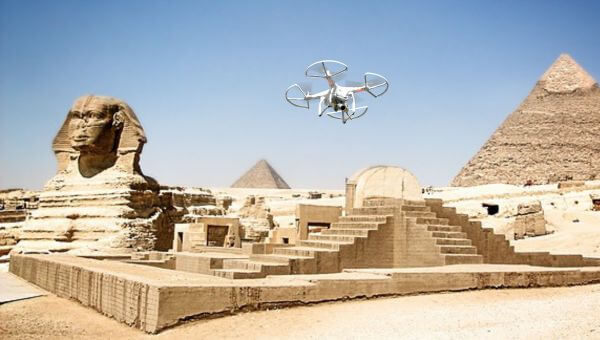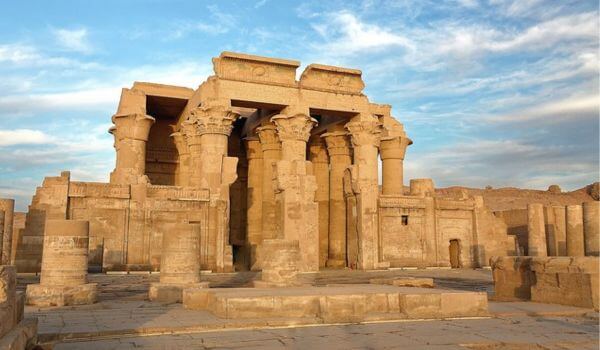How To Avoid Tourist Scams In Egypt
Do you want to know how to avoid tourist scams in Egypt? You are in the right place.
As a land of ancient wonders and beautiful beaches, Egypt has captured the hearts of travelers for centuries. Whether you are coming for a beach holiday, exploring the historical temples and pyramids, or tasting delicious Egyptian food, you will definitely enjoy your stay here.
However, while planning your trip, you should do good research about the country, culture, and habits of the local people. If you are coming from the Western world, it may be a cultural shock for you. Especially if you have never visited any African country before.
If you travel anywhere in the world, and mostly in African countries where people don’t have many resources, you should know about the tourist scams before you go in order not to be disappointed with the country.
In this blog post, I would like to tell you about scams in Egypt and how to avoid them to have an enjoyable holiday.
As the owner of this website, I’ve included some recommendations for your trips. When you use the links to make a purchase, I may get a small commission. You will not get charged extra. Full disclosure.
When planning your trip, use my recommended travel resources
?Book tours with GetYourGuide or Viator
?Stay connected with Airalo eSIM
?Find accommodation with Booking or Expedia
✈️Find the cheapest flights with WayAway flight aggregator
?⚕️Wherever you travel, bring insurance with you. SafetyWings
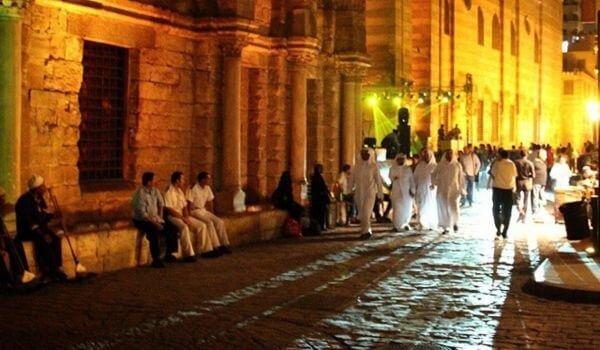
Are There A Lot Of Scams In Egypt?
Egypt is an African country where many people are poor. Of course, not all Egyptian people, as many are educated, have a great work, or business and they live an abundant life. However, with a population of over 112 million, not everyone can be rich.
The people you will meet working in tourist areas, like pyramids, temples, taxis, bars, and beach resorts, are usually the poorer ones. These poor people see the tourists as rich and they try to use many scams to get some extra money for themselves. Again, not all people are like this.
So are there a lot of scams in Egypt? Yes, if you are coming as a tourist you will experience some scams for sure. Nevertheless, with good information and an approach you can avoid most of them.
How To Avoid Tourist Scams In Egypt
Egyptian people and also any African people are very good at communication and negotiation. Therefore you have to prepare yourself to be strong, show them you know more than they think, that you are not just a naive tourist visiting the first time, and don’t show any fear.
With the information provided in this article, you will be prepared for common tourist scams and know how to avoid them. Having an Arabic friend or knowing some Arabic words is always handy.
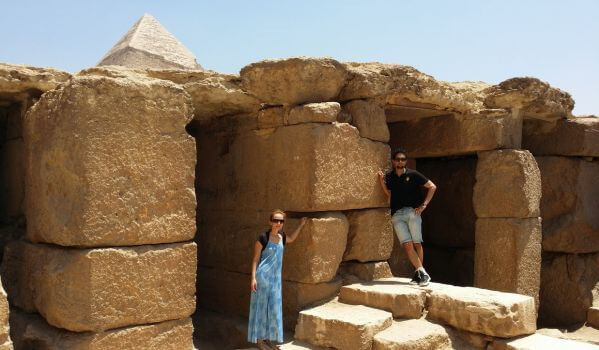
Types Of Tourist Scams In Egypt
There are different types of scams and they may find some new innovative ways, however here are some common tourist scams in Egypt.
Transportation from the airport
Once you come out of the airport, be ready for a lot of men to approach you and offer transportation. They will try to take your luggage, to help you and ask you for your name and where are you going.
If you agree to go with one of them, you will pay a higher price. Don’t be scared of them, just say, no thank you or La Shukran in Arabic. The cheapest way is either by bus or Uber.
Overpriced taxis
If you choose to use taxis in Egypt, especially in Cairo or Luxor, be ready to be overcharged. Before you sit in the taxi, you need to make sure the taxi driver knows where you want to go and you should show him the map and how long it will take so he knows you are informed.
Then agree on the price before you go. They will of course double the price so you need to negotiate. Sometimes they pretend they don’t speak English, so you have to write the numbers. Or they will show you numbers in Arabic, therefore it is good to know the numbers.
Offering tours
Around the tourist areas, you will find many fake tour guides. They will offer you different tours, and tell you the price which will be more than usual. They will take you around but don’t provide any valuable information. Therefore don’t buy any tours from people outside the tourist sights.
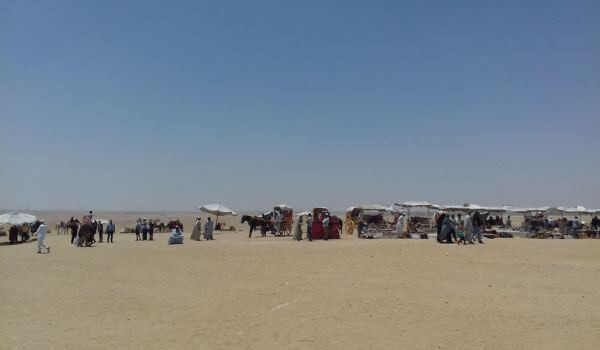
Offering camel rides or horse carriage
This is very common in Giza around the pyramids, but you can also meet them elsewhere. They are very persistent in offering rides, telling you it is very far to walk around the pyramids. They will tell you a very low price, but once you finish the ride, the price will be five times higher.
Therefore avoid camel rides and horse carriage rides, walk, or use the official tour.
You can pay later
Never ever agree that you can pay later. They are very good at showing you around, offering tea, coffee, taxi, and if you ask how much, they will say, don’t worry, you can pay later. However, later you may be surprised by the price.
Therefore, always demand to know the price in advance. If they don’t want to say, then just leave. This applies to everything, taxis, buying water, street food, souvenirs, and you should always negotiate. Nothing has a fixed price in Egypt unless you are shopping in malls or supermarkets.
Picture taking
This is not a very bad scam and some people actually don’t mind, but I will mention it so you are aware of it. If they see tourists with a camera, they offer to take a picture of you. It may seem like nothing strange as in the Western world, we do that normally.
However, if you let them take a picture of you, they will ask for money for it. So you can give him 5-10 Egyptian pounds. You can also say you don’t need a picture to be taken. La shukran.
Pickpocketing
Pickpocketing is happening all over the world, so no matter where you travel, you should be careful of your belongings. Try to avoid crowded places and keep your bag in front of you.
Some tricks can be used, for example, a bird poopoo on you and someone comes quickly trying to clean it off you. Don’t let them touch you as they will pickpocket you.
They also show some entertaining shows on the street and a lot of people gather to watch. While you are curiously watching the show, someone goes around and tries to pickpocket people.
Showing you the way
If you look lost, the scammers use it as an advantage and offer you help. They will be very nice asking you where you want to go and they offer to show you the way.
After taking you to the place, they will ask for money for it or even say that it was a tour. Again, not everyone is like this, many people are genuinely nice and helpful, but be ready for that.
Restaurant and bar scams
You can also experience scams in restaurants and bars. When you are in a restaurant, make sure what you are ordering and how much it costs. You can also take a picture of it on the menu. Once you pay, check your bill.
The same applies to bars. Moreover, in a bar be careful with unknown friends who take you to some bar to drink and in the end, you have to pay for the whole bill which is going to be overpriced as they will share the money with their friends working in that bar.
Giving something for free
Egyptian people are very friendly and kind. They do invite you to their house, offering coffee or tea. However, you need to be careful. As a tourist you are a target to scammers who will very quickly give you tea, tell you to sit down, and have a friendly chat with you. In the end, they will ask you for money.
Also when you go shopping in the markets, they will give you a present. Once you accept the present you are tight to buy something whether you want it or not.

Romantic beach scam
Romantic beach scam is very common. If a single woman comes for beach holidays in any of the resorts, the guys will praise her, run after her, telling her how beautiful she is, he is thinking about her day and night, he can’t live without her, and he wants to marry her.
Many women do believe these beautiful words, fall in love, and are trapped. Even if they go back home, the men will call her, and write her with the same love words. She comes to visit him again and then he will start to ask for money. And if she doesn’t open her eyes, they will get married so he can move out of Egypt. By the way, this is happening in other countries, not just Egypt.
Many stories went too far and some women lost everything.
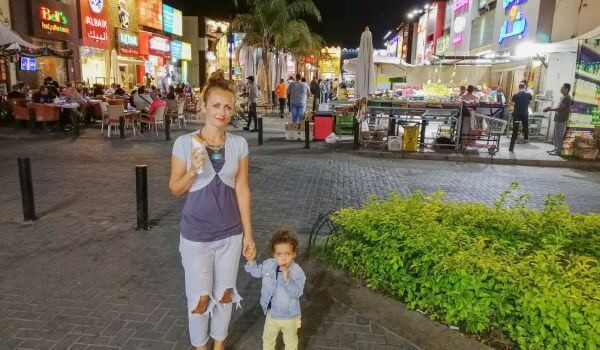
How Not To Get Scammed
Now you know the most common tourist scams in Egypt. Here you will learn how not to get scammed.
Say strongly No
When you experience a scam, be strong, but not aggressive. Be friendly and say no. Many times, you have to repeat NO several times because they are determined and they will try again, again, and again. If it doesn’t work, try Arabic, La Shukran.
Don’t use taxis
It is better not to use taxis if you don’t want to spend time negotiating the price and in the end, pay more than you have to. Bus or train are the cheapest way of transportation or it is better to use Uber.
Also when you buy a bus or train ticket, always buy it from the main station from the place they sell the tickets, not from people outside.
Book tours in advance
When you go sightseeing to see pyramids, temples, or cruises, buy the tours in advance from official sources. If you want to go alone, that is perfectly fine, but do not buy tours from people standing in front of the sights.
Agree on the price in advance
As already mentioned, no price is fixed unless you shop in malls, supermarkets, or shops with fixed prices. You are expected to negotiate the price everywhere. Always ask the price at the beginning. After you are told the price beat it by half and work on negotiation until you agree on the price.
If they don’t want to say and tell you, later, later, do not continue, say you are not interested, and leave.
Make sure you have some small money with you to give as a bakshish or if you pay for something as they may claim they don’t have change.
Avoid crowds
Avoid big crowds on the streets. If you are in markets in Egypt where a lot of people are gathering be careful of your belongings, and don’t take a passport with you and a lot of money. Keep your bag in front of you.
When you see crowds on the streets, do not join them, rather walk away.
Know the place where you are going
If you are going somewhere, do your research, and know where you are going, how long the journey takes, where you buy tickets, where is the entrance, or if there is more than one entrance in order you are not lied to.
Learn some Arabic
The best way to travel around Egypt is with an Arabic friend. When you have someone with you speaking Arabic people will not scam you. Also, that person can agree on prices for everything and you will not be charged as tourists.
For example, I visited the Pyramid of Giza with my Egyptian family. When we were around the pyramids, a guy approached us to sell us some magnets. I like them and bought one pack of 6 magnets. When we continued, I asked how much they were. They said 1 EUR. I was like what? 6 magnets for only 1 EUR? Can you get me another pack, please?
If you are a tourist alone, for sure the price would be much higher and you would have to negotiate.
I understand not everyone has family or friends in Egypt, so at least learn a few Arabic words that may be handy.
Yes – Naam
No – La
Thank you – Shukran
God’s Will – Inshallah (This one you can use anytime somebody wants you to buy something, go on a tour, or camel ride and you can’t get rid of him keep saying no. Just say Inshallah and they will leave you. When you observe and listen, they use this word for almost everything.)
Hello – Assalamu Alaikum
Bye – Masa Lama
How much – Bkam
Arabic numbers:

Don’t trust easily
Egyptian people are very nice and friendly. Be nice and friendly too. There is no need to be rude. However, don’t trust easily. Observe, be careful, be strong, say no, and stand behind your words firmly. This way you can avoid being scammed strongly.
However, if it happens to you that you are scammed, just give them some money and leave. It is not the end of the world.
Conclusion: Tourist Scams In Egypt
Here you have it. One of the preparation steps for your trip to Egypt is to know the most common tourist scams and how to avoid them. By staying vigilant and informed, you can ensure that your trip remains focused on exploration, discovery, and genuine connections rather than falling victim to tourist scams.
Remember, a bit of preparation goes a long way. Research, local advice, and a healthy dose of skepticism can be your best allies in safeguarding your travels.
As you immerse yourself in the wonders of Egypt, I hope your adventures will be free from any disruptions, allowing you to savor every moment and create lasting memories that will endure long after you’ve left its shores.


